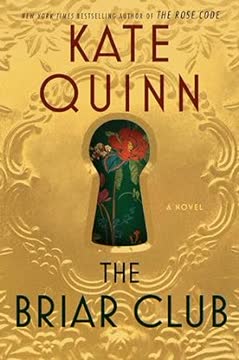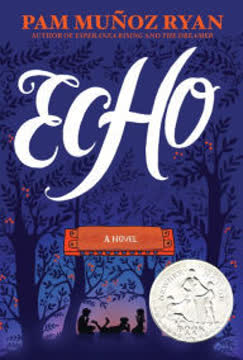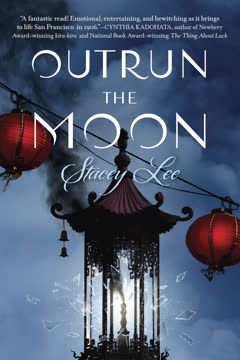Plot Summary
Atlanta's Invisible Boundaries
In 1890 Atlanta, seventeen-year-old Jo Kuan walks a tightrope between worlds. By day, she's a sharp-tongued assistant in a millinery shop, aware that her Chinese heritage makes her a curiosity and a target. Her only family is Old Gin, the man who raised her, and their home is a secret basement beneath a print shop. The city's social lines are drawn in black and white, and Jo, neither, is always on the outside. Her friendship with Robby, a Black deliveryman, and her daily encounters with prejudice and dismissal, set the stage for a story about survival, identity, and the longing to be seen.
Dismissal and Desperation
When Jo is abruptly fired from the millinery for being "uncomfortable" and "too opinionated," her world narrows. Blacklisted from other shops, she faces the threat of poverty and the fear of losing her home with Old Gin. The city's opportunities for a Chinese girl are few, and Jo's sense of worth is battered. Yet, her resilience surfaces as she seeks new work, only to be met with closed doors and open prejudice. The loss of her job is not just economic—it's a blow to her dreams of independence and self-expression, and it forces her to consider roles she never wanted.
Secret Lives Below Ground
Beneath the bustling print shop, Jo and Old Gin live in secrecy, their lives shaped by the need to remain invisible. Old Gin, once a teacher in China, is now a stable groom, and Jo's surrogate father. Their home is a relic of the Underground Railroad, a place of safety and confinement. Jo's eavesdropping on the Bells, the family above, offers comfort and connection, but also underscores her isolation. The threat of discovery is constant, and the past—marked by abandonment and the loss of community—haunts their every decision.
The Birth of Miss Sweetie
Desperate to help the Bells' struggling newspaper and to assert her own voice, Jo invents "Miss Sweetie," an anonymous advice columnist. Her first letter, witty and bold, is a gamble: can a Chinese girl's words, hidden behind a pseudonym, change minds and save the Focus? The column's success is immediate, sparking conversation and controversy. Jo finds power in her pen, relishing the freedom to speak truths she cannot utter aloud. Yet, the thrill of influence is shadowed by the risk of exposure, and the knowledge that her real self remains unseen.
Advice, Anonymity, and Ambition
As Miss Sweetie, Jo tackles topics from courtship to social injustice, her advice both practical and subversive. The column's popularity grows, bringing new subscribers and hope to the Bells. Jo's double life intensifies: by day, she's a maid for the wealthy Payne family; by night, she's the city's most provocative voice. The anonymity is both shield and prison, allowing her to challenge customs but forcing her to hide her identity from friends and foes alike. The stakes rise as her words begin to shape the city's debates—and draw dangerous attention.
Maid to Mistress Payne
Forced by necessity, Jo becomes lady's maid to Caroline Payne, her former childhood companion and tormentor. The Payne estate is a world of privilege and hypocrisy, where Jo is both indispensable and invisible. Caroline's cruelty is matched by her vulnerability, and Jo must navigate shifting power dynamics, old wounds, and new alliances. The job offers security but at the cost of dignity, and Jo's longing for autonomy grows. The estate's secrets—romantic, financial, and familial—mirror Jo's own, and the lines between servant and family blur in unexpected ways.
Bargains, Betrayals, and Bicycles
The city buzzes with anticipation for a charity horse race, and the arrival of the "freedom machine"—the bicycle—symbolizes new possibilities for women. Jo witnesses the ambitions and betrayals of Atlanta's elite, from secret affairs to social climbing. Her friendship with Noemi, a Black cook, deepens, and together they confront the limits imposed by race and gender. The suffragists' movement, the rise of Jim Crow laws, and the city's hunger for progress all swirl around Jo, who must decide where her loyalties lie and how much she's willing to risk for change.
Eavesdropping and Entanglements
Jo's habit of eavesdropping—on the Bells, the Paynes, and the city at large—draws her into a web of secrets. She learns of blackmail, forbidden love, and the hidden histories that bind Atlanta's families. Her own past becomes a puzzle, with clues pointing to connections she never imagined. The boundaries between observer and participant blur, and Jo is forced to confront the consequences of knowing too much. The tension between truth and safety, loyalty and ambition, comes to a head as old debts and new dangers converge.
The Power of the Pen
Jo's columns grow bolder, addressing segregation, women's rights, and the hypocrisy of Southern society. Her words inspire some and enrage others, including powerful men like Mr. Payne. The threat of exposure looms, as rivals and enemies seek to unmask Miss Sweetie. Jo's relationships—with Nathan Bell, the newspaper's heir; with Caroline; with her own surrogate family—are tested by the fallout of her public persona. The pen proves mightier than the sword, but also more perilous, as Jo's influence makes her a target.
Unmasking and Unraveling
As the search for Miss Sweetie intensifies, Jo's worlds collide. Friends and foes alike come close to discovering her secret, and the cost of anonymity grows unbearable. Betrayals by those she trusted, and revelations about her own origins, force Jo to confront who she is and what she stands for. The city's appetite for scandal threatens to destroy the Focus, the Bells, and Jo's fragile sense of belonging. The unmasking is both literal and metaphorical, as Jo must decide whether to claim her voice or retreat into silence.
Family Ties and Hidden Truths
A series of discoveries reveals that Jo is the illegitimate daughter of Mrs. Payne and a Chinese groom, Shang—making her both insider and outsider in Atlanta's most powerful family. Old Gin, her stand-in father, is actually her grandfather. The knowledge is both a wound and a liberation, explaining years of secrecy and rejection. Jo's sense of self is shattered and rebuilt, as she grapples with the meaning of family, loyalty, and forgiveness. The past's grip loosens, and Jo finds the strength to define her own future.
The Price of Belonging
When Old Gin is brutally attacked by a fixer collecting an old debt, Jo is forced to confront the city's corruption head-on. She bargains with dangerous men, navigates the treacherous world of blackmail and secrets, and faces the limits of her own power. The upcoming horse race becomes a crucible: Jo must decide whether to risk her safety, her reputation, and her newfound family for a chance at redemption and belonging. The cost of acceptance is high, but Jo is determined to pay it on her own terms.
Race Day Reckonings
On the day of the race, Jo—disguised in riding silks—takes Old Gin's place as jockey, determined to win the prize money and reclaim her family's honor. The race is a microcosm of Atlanta's struggles: alliances, betrayals, and the fight for recognition. Jo faces sabotage, prejudice, and physical danger, but draws strength from her community and her own resilience. The outcome is both triumphant and bittersweet, as Jo claims victory not just on the track, but in her own life.
Grit, Grace, and Goodbyes
In the aftermath of the race, Jo reconciles with her past and her present. She forgives those who wronged her, finds peace with her mother's choices, and embraces the family she has built with Old Gin, the Bells, and her friends. The city's boundaries remain, but Jo has carved out a space for herself—a place where she can be seen, heard, and loved. The lessons of grit and grace guide her as she steps into a future of her own making.
A New Kind of Family
With Old Gin recovering, Jo accepts a position at the Focus, continuing her work as Miss Sweetie and as herself. The Bells become her chosen family, and her relationship with Nathan deepens into love and partnership. The city is still divided, but Jo's voice—once hidden—now shapes its future. The story ends with hope: for Jo, for Atlanta, and for all those who dare to speak, to dream, and to belong.
Characters
Jo Kuan
Jo is a seventeen-year-old Chinese American girl navigating the racial and gendered boundaries of 1890 Atlanta. Raised by Old Gin, she is resourceful, sharp-witted, and fiercely independent. Her longing for belonging and recognition drives her to create the Miss Sweetie column, where she can express the opinions she must hide in daily life. Jo's relationships—with Old Gin, the Bells, Caroline, and Nathan—are shaped by her dual identity as both insider and outsider. Her journey is one of self-discovery, as she uncovers her true parentage, confronts betrayal, and ultimately claims her voice and her place in the world. Jo's psychological complexity lies in her simultaneous desire for invisibility and influence, her struggle with shame and pride, and her capacity for forgiveness and hope.
Old Gin
Old Gin is Jo's guardian and, as revealed, her grandfather. Once a teacher in China, he is now a stable groom, marked by dignity, patience, and a deep sense of responsibility. His life is shaped by loss—of homeland, family, and status—but he channels his love into raising Jo with care and discipline. Old Gin's insistence on secrecy is both protective and limiting, and his own guilt over past decisions (especially regarding his son, Shang) haunts him. His wisdom, humor, and quiet strength anchor Jo, even as his health fails. Old Gin's arc is one of atonement and acceptance, as he learns to let Jo forge her own path and to forgive himself for the burdens he carried.
Nathan Bell
Nathan is the son of the Bells, owners of the Focus newspaper. Intelligent, principled, and somewhat reserved, Nathan is both a product of his privileged upbringing and a challenger of its limits. His partnership with Jo—as editor, co-conspirator, and eventually romantic partner—reflects his openness to change and his respect for her intellect. Nathan's own struggles with family expectations, ambition, and the risks of defying social norms mirror Jo's journey. His psychological depth lies in his willingness to listen, to learn, and to stand beside Jo even when it threatens his own security.
Caroline Payne
Caroline is the daughter of Atlanta's elite, Jo's former playmate and current mistress. Spoiled, sharp-tongued, and often cruel, Caroline is also deeply insecure and lonely. Her relationship with Jo is fraught with rivalry, resentment, and a buried longing for connection. Caroline's own struggles—with her mother, with societal expectations, and with her sense of self—make her both a foil and a parallel to Jo. Her development is marked by moments of vulnerability and growth, as she confronts betrayal, loss, and the possibility of change.
Mrs. Payne (Emma)
Mrs. Payne is the matriarch of the Payne family and, as revealed, Jo's biological mother. Elegant, controlled, and emotionally distant, she embodies the contradictions of Southern womanhood: power and powerlessness, privilege and constraint. Her affair with Shang, her decision to abandon Jo, and her lifelong secrecy are sources of both guilt and survival. Mrs. Payne's psychological complexity is rooted in her fear of scandal, her longing for love, and her inability to reconcile her public and private selves. Her eventual recognition of Jo is both a wound and a gift.
Noemi Withers
Noemi is a Black cook at the Payne estate and Jo's closest ally. Practical, outspoken, and fiercely loyal, Noemi navigates the intersecting oppressions of race and gender with humor and grit. Her own family history—marked by loss, resilience, and complicated ties to the city's underworld—mirrors Jo's. Noemi's advocacy for suffrage, her support of Jo's ambitions, and her willingness to challenge authority make her a catalyst for change. Her psychological strength lies in her refusal to accept limits and her belief in collective action.
Robby Withers
Robby, Noemi's husband, is a deliveryman and one of Jo's few friends outside her family. Kind, hardworking, and quietly ambitious, Robby faces the barriers of racism with pragmatism and hope. His efforts to secure better work, his support of Noemi's dreams, and his encouragement of Jo's endeavors make him a model of everyday heroism. Robby's psychological resilience is rooted in his sense of humor, his adaptability, and his unwavering belief in the possibility of progress.
Billy Riggs
Billy is a white fixer and blackmailer, emblematic of Atlanta's corruption and moral ambiguity. Cunning, ruthless, and driven by resentment, Billy manipulates secrets for profit and power. His own mixed-race heritage, revealed through his connection to Noemi, adds layers to his character: he is both oppressor and oppressed, insider and outsider. Billy's psychological complexity lies in his self-loathing, his hunger for respect, and his willingness to exploit others' vulnerabilities. His interactions with Jo are fraught with danger, but also with a grudging recognition of shared struggle.
The Bells (Mr. and Mrs. Bell)
The Bells are the owners of the Focus and Jo's unwitting benefactors. Mr. Bell is blustery, principled, and sometimes oblivious; Mrs. Bell is gentle, wise, and quietly radical. Together, they represent the possibility of allyship and the limitations of good intentions. Their willingness to embrace Jo, to support her ambitions, and to challenge the city's norms make them essential to her journey. Their psychological depth is found in their capacity for growth, their openness to change, and their commitment to justice.
Shang
Shang is Jo's biological father, a Chinese groom whose love affair with Mrs. Payne sets the story's secrets in motion. His absence is a wound for both Jo and Old Gin, and his choices—marked by longing, shame, and the search for belonging—haunt the narrative. Shang's psychological presence is felt in the legacy of abandonment, the quest for redemption, and the possibility of forgiveness.
Plot Devices
Dual Identity and Anonymity
The novel's central device is Jo's double life: by day, a marginalized servant; by night, an influential advice columnist. This duality allows for exploration of voice, agency, and the power of words to challenge social norms. Anonymity is both protection and prison, enabling Jo to speak truth to power while forcing her to hide her true self. The tension between public and private identity drives much of the plot, as Jo's secret becomes both her weapon and her vulnerability.
Eavesdropping and Hidden Spaces
The physical setting—a hidden basement, a speaking tube, secret tunnels—mirrors the novel's themes of concealment and revelation. Jo's habit of eavesdropping is both survival strategy and narrative engine, allowing her to gather information, influence events, and connect with the world above. The motif of hidden spaces extends to emotional and social realms, as characters conceal desires, histories, and truths from themselves and others.
Social Satire and Advice Columns
The advice column is a vehicle for satire, critique, and subversion. Through Miss Sweetie, Jo addresses issues of race, gender, class, and hypocrisy, using wit and wisdom to challenge Atlanta's customs. The column's popularity and controversy serve as a barometer for the city's readiness for change, and its responses—admiration, outrage, imitation—foreshadow the risks and rewards of speaking out.
Family Secrets and Hidden Lineage
The revelation that Jo is the illegitimate daughter of Mrs. Payne and Shang is foreshadowed through clues, omissions, and symbolic objects (the snuff bottle, the letter, the rug). The device of hidden lineage explores themes of belonging, shame, and the arbitrariness of social boundaries. The gradual unmasking of family secrets parallels Jo's journey toward self-acceptance and the city's slow reckoning with its own history.
The Horse Race as Climax
The charity horse race is both literal and symbolic: a contest of speed, skill, and nerve, but also a microcosm of Atlanta's battles over race, gender, and class. The race brings together all the novel's threads—alliances, betrayals, ambitions—and serves as the crucible in which Jo's courage, resourcefulness, and sense of self are tested. The outcome is both a personal victory and a statement about the possibility of change.
Foreshadowing and Irony
The novel employs foreshadowing through dialogue, objects, and recurring motifs (hats, knots, advice, hidden doors). Irony abounds: Jo's advice to others often applies to herself; the city's obsession with propriety masks deep corruption; the marginalized servant becomes the city's conscience. These devices enrich the narrative, deepen character arcs, and invite readers to question appearances and assumptions.
Analysis
Stacey Lee's The Downstairs Girl is a vibrant, emotionally resonant exploration of identity, voice, and belonging in a society defined by exclusion. Through Jo Kuan's journey, the novel interrogates the boundaries of race, gender, and class in the post-Reconstruction South, revealing both the cruelty of social hierarchies and the resilience of those who live in their shadows. The device of the anonymous advice column allows for incisive social commentary, blending humor and critique to challenge the status quo. The story's emotional arc—Jo's movement from invisibility to influence, from longing to self-acceptance—mirrors the broader struggle for justice and recognition faced by marginalized communities. The novel's modern relevance is clear: it speaks to the ongoing need for diverse voices, the power of storytelling to effect change, and the importance of claiming one's place in the world. Lee's message is ultimately one of hope: that even in the most constricting circumstances, grit, grace, and the courage to speak can forge new paths and new families. The lessons of The Downstairs Girl—about empathy, agency, and the transformative power of truth—resonate far beyond its historical setting, offering inspiration for readers navigating their own boundaries and dreams.
Last updated:
Review Summary
The Downstairs Girl received mostly positive reviews, praised for its engaging historical fiction, diverse representation, and exploration of race and gender issues in 1890s Atlanta. Readers appreciated the well-developed characters, especially the witty and resilient protagonist Jo Kuan. Many found the book educational and thought-provoking, with its insights into Chinese American experiences in the South. Some criticized pacing issues or melodramatic elements, but overall, reviewers found it a compelling and important read that appeals to both young adult and adult audiences.
Similar Books
Download PDF
Download EPUB
.epub digital book format is ideal for reading ebooks on phones, tablets, and e-readers.


















